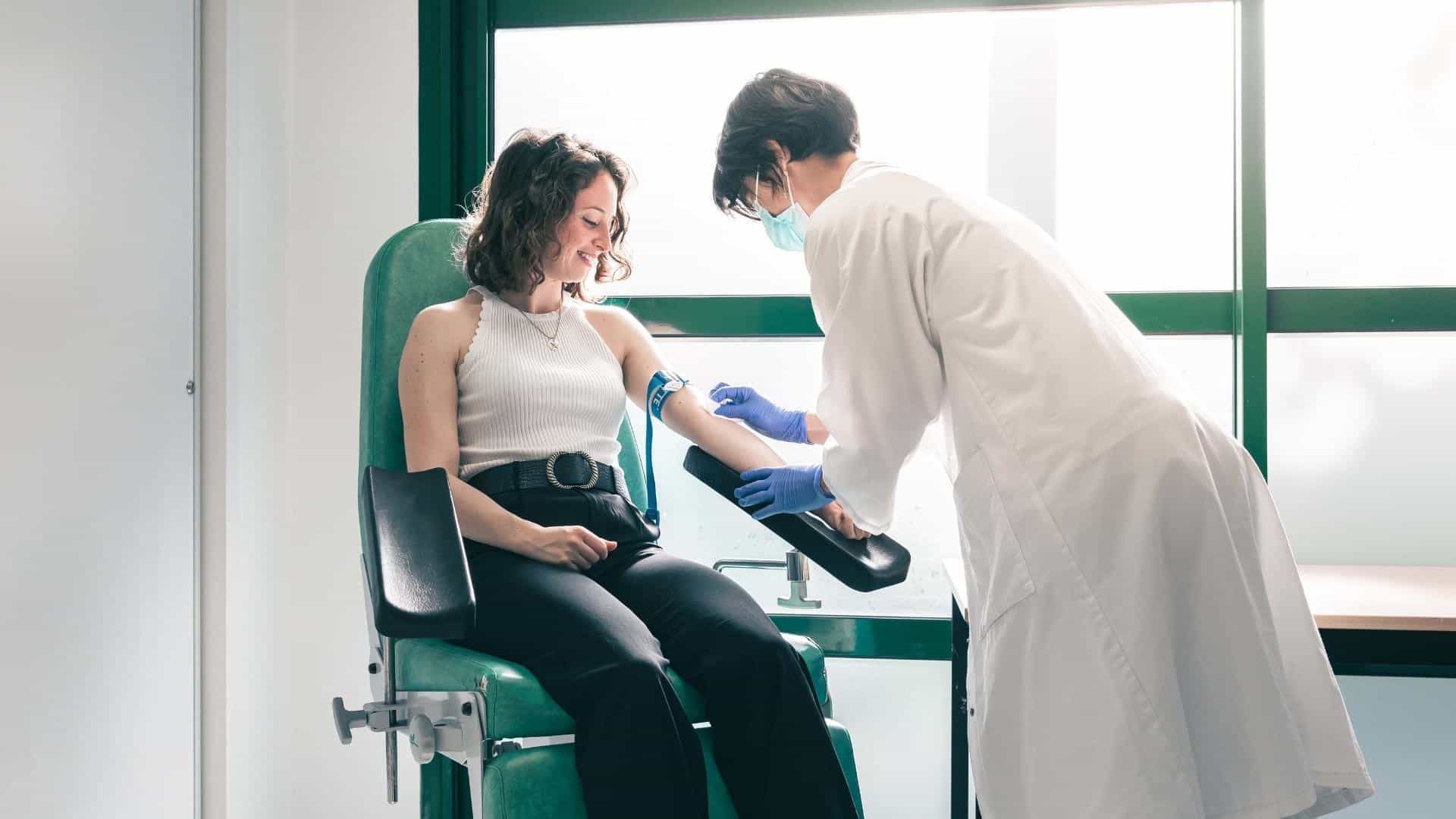Understanding the Purpose of the Trial
Before deciding to join a clinical trial, it’s crucial to understand the specific reasons why the trial is being conducted. Clinical trials are designed to answer specific research questions, such as whether a new treatment is safe and effective, how it compares to existing treatments, or how it impacts a particular condition.
The trial might focus on testing a new drug, a medical device, a surgical procedure, or a behavioral intervention. Understanding the trial’s objectives will help you gauge the importance of the research and its potential impact on medical science and patient care.
For example, some trials are conducted to find better treatments for chronic conditions like diabetes or heart disease, while others may investigate groundbreaking therapies for rare or life-threatening illnesses such as certain types of cancer.
Knowing the purpose of the trial helps you see how your participation could contribute to advancing treatments for specific conditions and improving outcomes for future patients.
How the Trial’s Goals Align with Your Personal Health Needs or Interests
It’s equally important to consider how the clinical trial’s goals align with your health needs or personal interests. If you have a particular medical condition, you might be interested in a trial that offers access to new treatments that are not yet available through standard care. Such a trial could provide early access to innovative therapies that might improve your health outcomes.
On the other hand, if you are a healthy volunteer, you might choose to participate in a trial out of a desire to contribute to medical research that benefits society. Understanding the trial’s objectives allows you to determine whether the study aligns with your motivations, whether they are to seek potential health benefits, contribute to scientific knowledge, or both.
By aligning the trial’s purpose with your personal health goals and interests, you can make a more informed decision about whether participation is right for you.
Weighing the Benefits and Risks of Participation
Assessing the Benefits
When considering joining a clinical trial, one of the primary factors to evaluate is its potential benefits. For some participants, especially those with serious or chronic health conditions, clinical trials provide access to new treatments and therapies that are not yet available to the general public. This can be particularly appealing if existing treatment options have been ineffective or if the trial offers a promising new approach that could improve health outcomes.
In addition to potential health benefits, many clinical trials offer financial compensation and other benefits. Compensation can vary depending on the trial’s duration, the level of participation required, and the associated risks. This compensation is intended to acknowledge the time and effort participants invest in the trial. Other benefits may include free medical evaluations, travel reimbursements, or the opportunity to receive healthcare services related to the trial.
Beyond personal benefits, participating in a clinical trial allows you to contribute to broader medical research and public health. Your involvement helps researchers gather valuable data that can lead to new treatments, improved care practices, and a better understanding of various medical conditions. This contribution can be deeply fulfilling, knowing you are helping advance scientific knowledge and potentially benefit future patients.
Considering the Risks
While the potential benefits are important, it’s equally crucial to consider the risks associated with participating in a clinical trial. One of the primary concerns is the possibility of side effects and health risks, especially in trials testing new drugs or treatments that have not been widely used before. These risks can range from mild to severe; in some cases, they may be unknown at the start of the trial.
There is also an inherent uncertainty in clinical trial outcomes. The treatment being tested may not be effective or work as anticipated for every participant. It’s important to understand that clinical trials are research studies, and their success is not guaranteed.
Additionally, participation in a clinical trial often requires a significant time commitment and can impact your daily life. Trials may involve frequent visits to the study site, regular medical tests, and adherence to specific protocols or lifestyle changes. This can affect your routine, work schedule, and personal life, so weighing these factors when deciding whether to participate is important.
By carefully balancing the potential benefits against the risks, you can make a well-informed decision about whether joining a clinical trial aligns with your health goals and life circumstances. Understanding both sides of the equation is key to making a right choice for you.
Evaluating Eligibility Criteria
Understanding the Trial’s Inclusion and Exclusion Criteria
Before enrolling in a clinical trial, it’s essential to understand the study’s inclusion and exclusion criteria. These criteria are specific guidelines that determine who can participate in the trial.
Inclusion criteria specify a participant’s characteristics to be eligible for the study, such as age range, gender, type, and stage of a disease, previous treatment history, and other relevant factors.
On the other hand, exclusion criteria identify the characteristics that would prevent someone from participating, such as certain medical conditions, previous adverse reactions to similar treatments, or the use of certain medications.
These criteria are in place to ensure the safety of participants and the integrity of the data collected during the trial. By carefully selecting participants who meet the criteria, researchers can reduce the risk of complications and ensure that the trial results are accurate and applicable to the population being studied.
Importance of a Thorough Health Assessment
A thorough health assessment is critical in determining whether you are eligible to participate in a clinical trial. This assessment typically involves a detailed review of your medical history, physical examinations, and diagnostic tests.
This assessment aims to ensure that you meet the trial’s inclusion criteria and do not have any conditions that would place you at risk if you were to participate.
The health assessment also provides a baseline of your current health status, which will be used throughout the trial to monitor your progress and any changes resulting from the treatment being tested. This monitoring is essential for identifying any adverse effects early and ensuring you receive appropriate care if any issues arise during the trial.
Understanding the inclusion and exclusion criteria and undergoing a thorough health assessment helps ensure that participation in a clinical trial is safe and appropriate for you. These steps are vital for protecting your health and contributing valuable data to the research study.
Informed Consent and Participant Rights
The Role of Informed Consent in Clinical Trials
Informed consent is a fundamental aspect of clinical trials, ensuring that participants are fully aware of the nature of the study, the procedures involved, the potential risks and benefits, and their rights as participants.
The informed consent process involves providing participants with comprehensive information about the trial in a clear and understandable manner, typically through a detailed consent form and discussions with the research team.
This process is designed to help participants make an informed decision about whether to join the trial. It ensures that they understand what participation entails, including any procedures they will undergo, the purpose of the research, the potential outcomes, and any risks or discomforts they might experience.
Informed consent is not just a one-time event but an ongoing process, with participants encouraged to ask questions and seek clarification throughout the trial.
Understanding Your Rights as a Participant, Including the Right to Withdraw
As a participant in a clinical trial, you have several important rights protected by ethical guidelines and regulations. One of the most critical rights is the right to withdraw from the trial at any time, for any reason, without facing any penalties or loss of benefits to which you are otherwise entitled. This means that even after signing the informed consent form and starting the trial, you can stop participating if you feel uncomfortable or circumstances change.
In addition to the right to withdraw, participants have the right to be informed of any new information during the trial that might affect their willingness to continue. Researchers must provide updates on the study’s progress, emerging risks, or changes in the trial protocol.
Participants also have the right to privacy and confidentiality. All personal and medical information collected during the trial is kept confidential and only used for research. The trial’s results are typically reported in a way that does not identify individual participants.
In summary, informed consent and participant rights are central to the ethical conduct of clinical trials. By understanding these rights and the role of informed consent, you can ensure that your participation is voluntary, informed, and respectful of your autonomy and well-being.
Consulting with Healthcare Providers
Before deciding to participate in a clinical trial, having a thorough discussion with your healthcare provider is essential. Your doctor knows your medical history, current health status, and treatment options best, making them an invaluable resource in helping you make an informed decision.
They can provide personalized advice on whether participating in a trial is appropriate for your condition, considering any potential risks and benefits. Additionally, your doctor can help you understand how the trial may interact with your current treatments and their impact on your overall health.
Discussing the trial with your healthcare provider ensures that you are making an informed decision and that your ongoing care is coordinated. Your doctor can work with the research team to monitor your health throughout the trial, ensuring that any issues are addressed promptly.
How to Seek a Second Opinion and Gather Advice from Medical Professionals
Sometimes, you may want to seek a second opinion before joining a clinical trial, especially if the trial involves a new or experimental treatment. Seeking a second opinion from another medical professional can provide additional perspectives on the potential risks and benefits and the overall suitability of the trial for your condition.
To gather advice, you might consider consulting with specialists with experience in the specific area of research the trial is focused on. These professionals can offer insights into the latest treatment advancements and the potential implications of participating in a clinical trial.
Additionally, they can help you understand the trial’s goals, how it compares to other available treatments, and what to expect throughout the process.
By consulting with your primary healthcare provider and seeking additional opinions, you can ensure that you are making a well-rounded, informed decision about participating in a clinical trial. This collaborative approach helps you weigh all factors and choose the best choice for your health and well-being
Personal Considerations
When considering participation in a clinical trial, it’s important to reflect on how the trial aligns with your values and long-term goals. Some individuals are motivated by the desire to contribute to scientific research and help others by advancing medical knowledge.
For others, the primary goal might be to access new treatments that could improve their health or manage a chronic condition more effectively. Understanding your motivations can help you determine whether the potential benefits of participating in the trial align with what you hope to achieve.
Consider whether the trial’s purpose resonates with your personal beliefs and priorities. For instance, if you strongly value contributing to research that could lead to breakthroughs in treating a specific disease, joining a trial in that area might be particularly meaningful.
Conversely, if you have reservations about experimental treatments, weighing these concerns carefully against the potential benefits is important.
Assessing Your Current Health Status and Life Circumstances
Your current health status and life circumstances play a crucial role in your ability to participate in a clinical trial. It’s essential to consider whether you are physically and mentally prepared for the demands of the trial, which might include frequent medical visits, tests, and adherence to specific protocols.
If you are managing other health conditions or are concerned about how the trial might impact your overall well-being, discussing these factors with your healthcare provider is vital.
Additionally, consider how participation might affect your daily life. Clinical trials can be time-consuming, requiring regular appointments, potential travel, and adherence to strict schedules. Assess whether you have the time, energy, and support to commit to these demands without significantly disrupting your personal or professional life.
By aligning the trial with your values and carefully assessing your health and life circumstances, you can make a more informed and thoughtful decision about whether to participate. This approach ensures that your involvement is beneficial to the research and a positive experience for you personally.
Conclusion
Deciding whether to join a clinical trial is a deeply personal choice that involves weighing potential benefits against possible risks. By understanding the trial’s purpose, evaluating how it aligns with your health goals, and consulting with healthcare providers, you can make an informed decision that’s right for you. Clinical trials are crucial in advancing medical research, and your participation could help bring new treatments to those who need them most.




